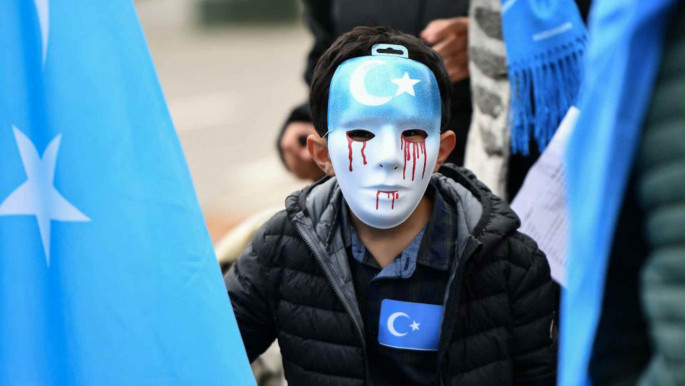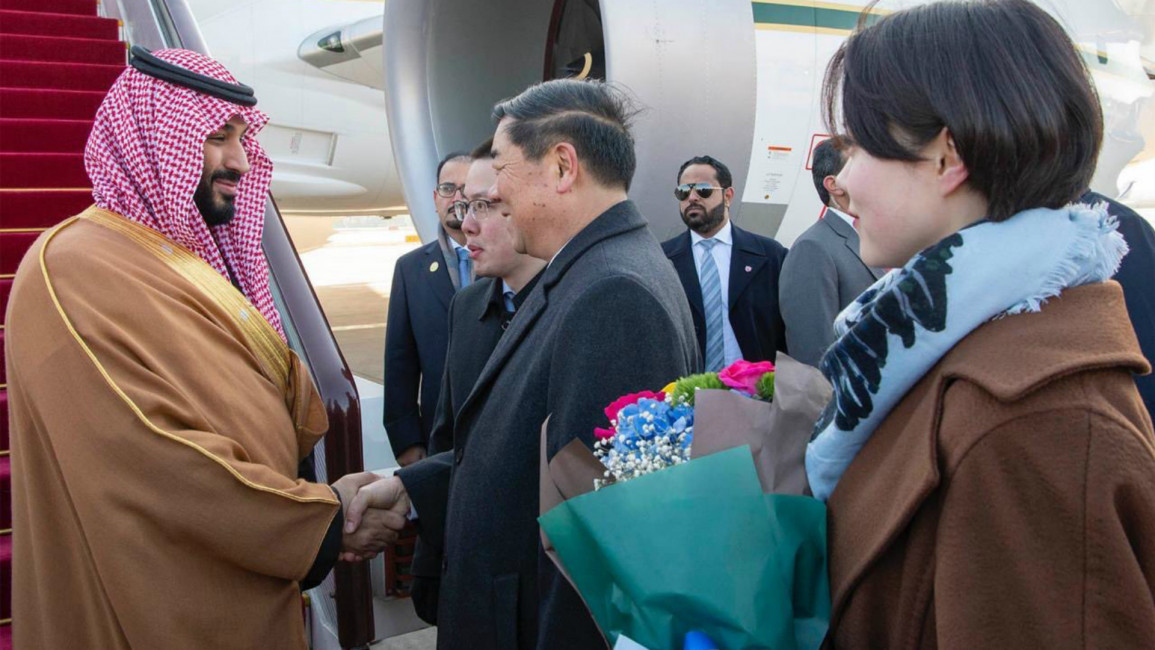Saudi crown prince arrives in China
MbS is expected to meet Chinese President Xi Jinping on his two-day trip to the Chinese capital following visits to Pakistan and India.
The tour has allowed him to show that Riyadh still has allies after the grisly murder of Saudi journalist Jamal Khashoggi - a fierce critic of Mohammed - at the Saudi consulate in Istanbul tarnished the image of the kingdom and the prince.
The Chinese foreign ministry said Beijing's ambitious Belt and Road global trade infrastructure initiative will be on the agenda, as the two countries look to improve their economic ties.
"Saudi Arabia has a lot of capital that needs to find profitable places to be deployed," Saudi energy and industry minister Khalid bin Abdulaziz Al-Falih told China's official Xinhua news agency.
|
"China is a great place to invest with a huge market and an improving environment," he said.
In his Pakistani stop, MbS was given a royal welcome, full with fighter-jet escort, horse-drawn carts and gold-plated gifts, which earned back Islamabad a $20 billion investment pledge and mass pardon of Pakistani prisoners held by the kingdom.
On Wednesday, the monarch met Indian Prime Minister Narendra Modi, whose country counts Saudi Arabia as one of its key crude suppliers.
Read also: India 'prevents MbS flying direct from Pakistan', forces him home to Riyadh first
After his meeting with Modi, MbS said the kingdom saw investment opportunities in "various fields to exceed $100 billion."
He also vowed to crackdown on terrorism with Modi, as their meeting was overshadowed by a suicide bomb attack that India has blamed on Pakistan - a key Saudi ally.
 |
|
| Read also: China can no longer cover up its Uighur Muslim oppression |
But the kingdom has remained silent, however, over China's treatment of Uighurs and other mostly Muslim minorities in the far-west region of Xinjiang. Up to one million Uighurs and other minorities are being held in internment camps in Xinjiang as part of a draconian anti-terror and anti-separatist campaign, according to estimates cited by a UN panel.
MbS' visit to Pakistan, India and China is part of an Asian tour. The trip comes as Riyadh attempts to strengthen its relations with the kingdom's allies outside the West following the Saudi state-sanctioned murder of journalist Jamal Khashoggi and the kingdom's role in the Yemen war. Analysts say the tour is part of a Gulf pivot to rising Asia as a growing oil market, but also a timely demonstration to the West that the crown prince is not an international pariah.
"This is certainly a pivot to Asia for the future. MbS knows that economically the East is going to be more important than the West in the long-run particularly as they do not apply a human rights conditionality to their engagement with Saudi Arabia," Dr Andreas Krieg, assistant professor at King's College London, told The New Arab.
"While Saudi Arabia has long invested in Pakistan, it is now a partnership as the Saudis require Pakistan as an exporter of military technology and human capital. India is equally important," he added.
"All that happens as Saudi is under pressure in Washington, Brussels and Berlin where MbS is currently viewed as a persona non grata - something that nobody believes is going to change any time soon," he added.
The brutal killing of journalist Khashoggi in the Saudi consulate in Istanbul in October triggered the kingdom's biggest diplomatic crisis in years.



